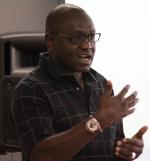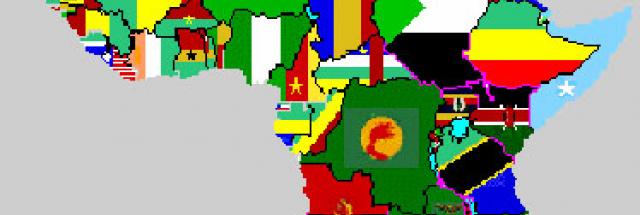Refugees – a response from Africa
Recently we carried an article by John Bond, which pointed out that Europe – and Britain in particular – has helped create the tragic situations in Africa and the Middle East from which refugees are fleeing to Europe, and Europeans thereby have a responsibility to care for the refugees. One response came from Kenyan constitutional lawyer, Dr Ekuru Aukot.
 ‘You say that Europeans – and Britain in particular – has a historical debt to pay; and Europe cannot avoid involvement because it had a hand in the creation of nations that are now in trouble.
‘You say that Europeans – and Britain in particular – has a historical debt to pay; and Europe cannot avoid involvement because it had a hand in the creation of nations that are now in trouble.
‘It may be fair not to pile all blame onto Europeans. Africans have also failed themselves. The African Union is calling on African states to pull out of the International Criminal Court, yet they cannot address the on-going genocide in Burundi, as well as wanton human rights violations in Central African Republic and South Sudan, to mention but a few countries. What is our share of the blame, when African strongmen protect themselves at expense of the continent and the majority poor eventually have to flee to Europe for survival? Every time the AU assembles in Addis Ababa, they discuss nothing progressive for the continent but rather how they can protect one of their own, such as Kenya’s President Uhuru, his Deputy William Ruto, and Omar El Bashir of Sudan, all whom are suspects before the ICC for crimes against humanity.
‘Even where Europe has compensated Africans and given development grants, our leaders have often squandered those resources. Corruption is runaway in Africa. In Liberia, government officials are alleged to have misappropriated Ebola money; Kenyan officials are deeply implicated in mega corruption scandals including the most recent one involving an alleged investment in Eurobonds. To date, it is not clear where the money is.
I therefore see a conspiracy implicating both Europe and our own African governments. While I agree Europe has a role in it, when can we look inwardly and admit we are sometimes the authors of our own misfortunes? Look at the folly that is Zimbabwe today; while President Mugabe continues to lambast the West for his country’s woes (which isn’t even true), millions of the people he rules with an iron fist are starving. How is this the problem of Europeans?
‘We must apportion blame to Africans for continued mis-governance of their own countries. Look at South Sudan. It received international support to attain independence in 2011, yet only three years later it picked up arms against itself. Who honestly is to blame for that?
‘At present Western governments tend to collaborate with inept, corrupt and dictatorial regimes, thus institutionalizing bad governance. Britain and the USA collaborate closely with the Kenyan Government despite the ICC’s serious allegations against the President and his Deputy. European nations need to be brutally honest with African nations if they continue to support them, and even more if they intend to compensate them.
‘We now have a generation of Africans working for the transformation needed to establish better governance. Caring European governments need to build real partnerships with this new crop of African people. That is our hope at the Thirdway Alliance. We aim to bring the paradigm shift that will enable a meaningful partnership between Europe and Africa.
‘And as far as the migrants are concerned, I hope that Europeans and the world look at the positive aspect of migration. Throughout history, migrants have often benefited the countries, which received them. Look at Madeleine Albright who emigrated to the USA and became Secretary of State. Albert Einstein was once a refugee, too. Who knows what your current migrants will become!’
Dr Aukot was the Director of the Committee of Experts which developed the 2010 Kenyan Constitution. Since then he has been the Chief Technical and Constitutional Advisor in the on-going review of Liberia’s Constitution. He is a founder of Kenya’s Thirdway Alliance, which aims to develop alternative and transformative leadership in Africa through creating pathways into politics for young people, women and others currently side-lined from the political process.


